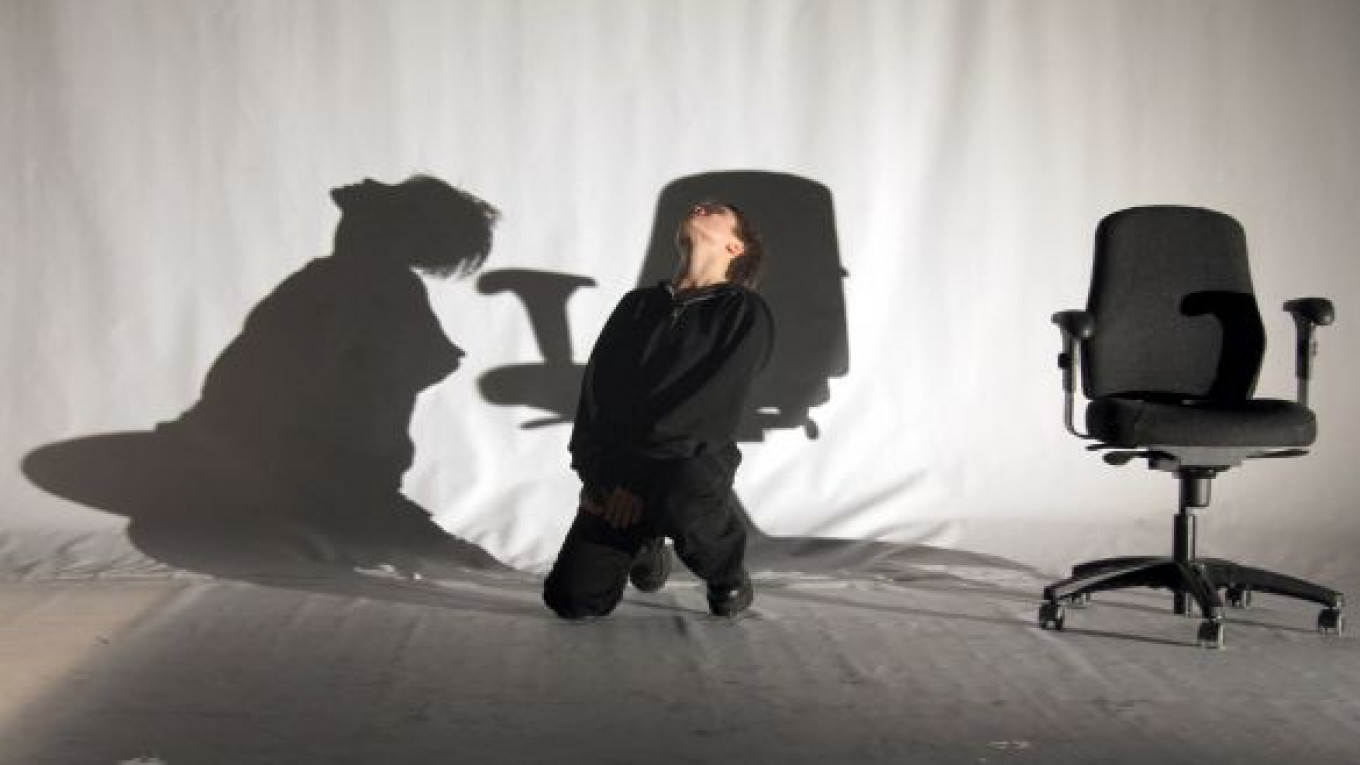What price does an individual pay for standing up to authority and following the dictates of one's conscience?
That is an eternal problem, of course. In writing his play "The Lark" Jean Anouilh took an incident from the 15th century — the burning of Joan of Arc at the stake — and applied it to the post-World War II era in the early 1950s. Still, it would be difficult to imagine a timelier question in these modern days of social unrest and political protest in Moscow.
Most everything about Zhenya Berkovich's production of "The Lark" at the Moscow Art Theater is washed with the colors of affection and an attempt at understanding. There are plenty of people who could be called villains in this story, including Joan's parents, especially her father, who were so harsh on her; the government and church officials in charge of condemning her; and the future French King Charles. But in the context provided by Berkovich most of them also emerge as victims at least in part.
What sets Berkovich's Joan apart from everyone is her simplicity of mind and purity of intent. As played by Maria Poyezzhayeva, this peasant who heeded the voice of an archangel telling her to go to war against the invading British is very much a girl, not yet a woman. She is prickly, even arrogant, in her relations with others, but utterly calm and grounded in her belief of herself.
Throughout this performance, I could not shake the notion that in Poyezzhayeva's performance I was watching a collective portrait of the young women I see daily on Moscow's streets. She brings to her role a confidence, a defiance, an ease, and — no small thing — a style that struck me as supremely contemporary.
Anouilh's play is set up as a collection of flashbacks. Joan's accusers are ready to put the torch to her, but the French Bishop Cauchon (Alla Pokrovskaya) insists on allowing the accused to relive the key moments of her life. Thus we see her in encounters with her mother (Natalya Merts), her father (Anton Vasilyev), King Charles (Sergei Medvedev) and others, whose actions have played a part in her arriving at this moment in her life — death by fire at the stake.
Casting Pokrovskaya in the male role of Cauchon was a small act of brilliance. Pokrovskaya's strong, but motherly presence adds tremendously to the warmth of this play about condemning a young idealist to death. Pokrovskaya's Cauchon is clearly on Joan's side, if not because of her religious beliefs, then because of her humanistic convictions. She tries everything she can do to save Joan, but Joan is not interested in salvation in this world. She heard what for her was the word of God and that is all that matters to her.
Also prominent in this interpretation of Anouilh's play is Medvedev's performance of King Charles. First appearing as the frightened and ineffectual heir apparent, easily manipulated by his advisors, he transforms thanks to Joan into a more sensitive and coherent ruler. True, that lasts only a passing moment. When Joan is no longer an asset to him, he unthinkingly abandons her to her fate. Medvedev beautifully plays the few scenes that describe the arc of this journey from cowering cowardice to vile insensitivity.
Designer Nikolai Simonov created a clean, contemporary set that provides the contrast of a white background and colored details such as bright red chairs or red neckties. Video projections including a speech by the king and backstage shenanigans as the story comes to an end remind us easily of modern-day television broadcasts or Internet podcasts. A clothes rack holding the characters' costumes always stands nearby at stage right, reminding us of two things, perhaps — first that even in death and political struggle fashion is of no small concern, and, second, that all of these people involved in this battle of wits are, to one extent or another, playing roles they agreed to play.
Berkovich's production of "The Lark" avoids bold statements and makes no attempt to be a voice of protest. It is a small, cozy work characterized by Poyezzhayeva's constant thin, ironic smile and Pokrovskaya's heartfelt wisdom. At times I found myself wanting a bit more punch from this tale about a teenage girl standing up to a cruel and corrupted world. But, be that as it may, the director and her cast gave this play an attractive and intimate human touch.
"The Lark" (Zhavoronok) plays Thurs. at 7 p.m. on the New Stage at the Moscow Art Theater, located at 3 Kamergersky Pereulok, entrance through the building of the Art Theater school stage. Tel. 692-6748. . Running time: 1 hour, 35 minutes.
A Message from The Moscow Times:
Dear readers,
We are facing unprecedented challenges. Russia's Prosecutor General's Office has designated The Moscow Times as an "undesirable" organization, criminalizing our work and putting our staff at risk of prosecution. This follows our earlier unjust labeling as a "foreign agent."
These actions are direct attempts to silence independent journalism in Russia. The authorities claim our work "discredits the decisions of the Russian leadership." We see things differently: we strive to provide accurate, unbiased reporting on Russia.
We, the journalists of The Moscow Times, refuse to be silenced. But to continue our work, we need your help.
Your support, no matter how small, makes a world of difference. If you can, please support us monthly starting from just $2. It's quick to set up, and every contribution makes a significant impact.
By supporting The Moscow Times, you're defending open, independent journalism in the face of repression. Thank you for standing with us.
Remind me later.







